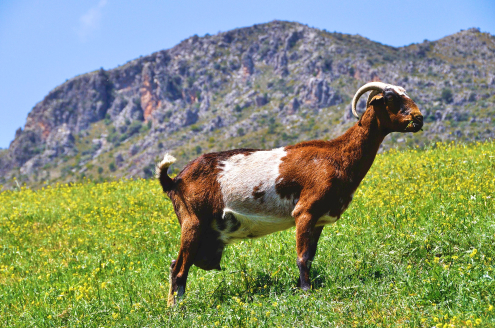Winning
Prestige
The cheese sector in Cádiz has experienced remarkable growth over the last decade. The number of cheese dairies has increased while getting numerous prizes in national and international competitions like World Cheese Awards, which cheeses from Cádiz win with a certain frequency. Such awards serve as recognition of the high-quality cheeses produced in the province. Exquisite, different and full of aroma and intense flavour. A taste of authentic cheese, not an industrial substitute!
The mountains of Cádiz are home to a significant part of the province’s cheese production, based mainly on goat and, to a lesser extent, sheep. The Sierra de Grazalema Natural Park has the highest rainfall in Spain. The mountains act as a wall against the humid winds from the Atlantic Ocean. This causes heavy rainfall in the area, which facilitates the development of excellent winter and spring pastures. The Cádiz mountain range extends southwards through the Alcornocales Park, which reaches as far as the Strait of Gibraltar.
In all these areas there are valuable plant formations, such as holm oak groves, Spanish firs, cork tree plantation, gall oak, wild olive groves and riverside forests. This is a natural territory with a low population level, where the goats and sheep of the area graze in total freedom. Livestock farming has a long tradition here, being one of the basic pillars of the local economy.

The production areas have also expanded with the flourishing of cheese dairies in other areas of the countryside, other than the traditional ones in the mountains.
Artisan cheese in Cádiz is alive thanks to the shepherds and their social environment. Nowadays, cheese production is carried out in modern cheese dairies which produce cheese to very high standards of quality and phytosanitary hygiene.

https://commons.wikimedia.org/w/index.php?curid=75233420
There are two indigenous species that stand out in cheese production in Cádiz: Payoya goat and the Merina de Grazalema sheep. The former is a recognised indigenous breed. Payoya, also known as Montejaqueña, is a very tall and long animal able to graze in areas of difficult access in the mountains. Raised extensively or semi-extensively, i.e. in liberty and not stabled, it adapts perfectly to its ecosystem and helps the sustainable development of the territory. Its milk is used to make exquisite cheeses with strong hint of vegetables.
Merina de Grazalema sheep is a crossbreeding between Merino and Churro. It’s a very hardy sheep, well adapted to areas of medium-high altitude and intense rainfall. Reared extensively, it’s used for both dairy and meat production. Its milk is high in fat and protein and provides excellent quality cheeses with a delicious taste.
But the exquisite range of goat cheeses from Cádiz doesn’t only come from Payoya breed. Different breeds, such as Florida or Murcian-Granadan, provide the raw material for other delicious cheeses made in the province.

